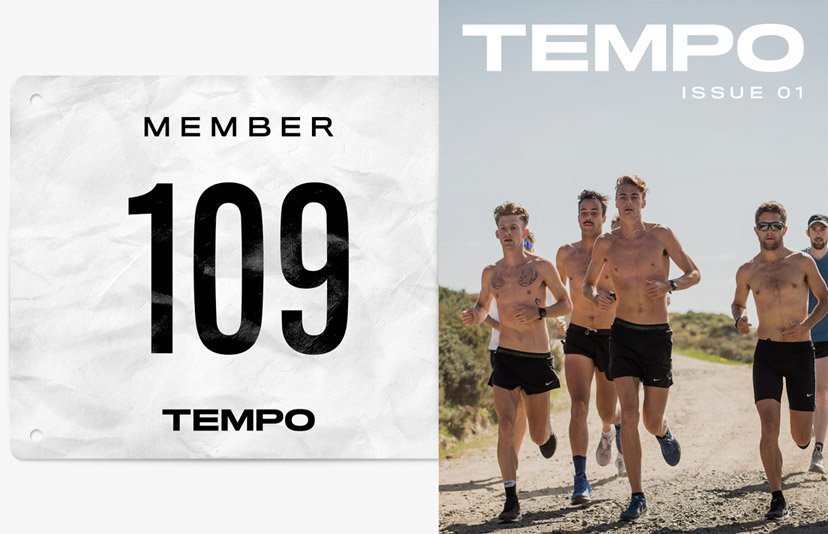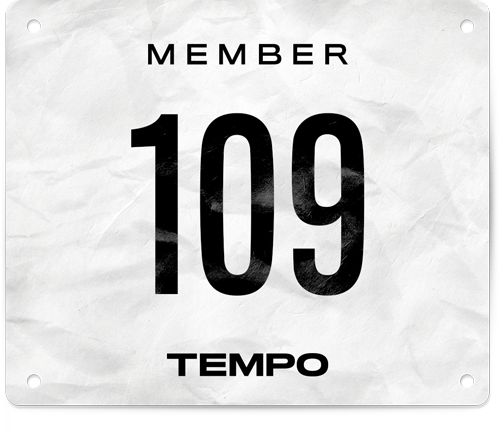Culture
Running is freedom
In Moscow, running right now is truly an act of rebellion
Editor’s Note: The below feature comes to us from Katia Zykova, a resident of Moscow, Russia. Moscow has more strict stay at home restrictions than we face in Australia, and much of the western world. To protect the identities of those featured, names have been changed. You can see more of Katia's incredible photography on her Instagram.
This feature was put together in late April and early May - as of mid June, restrictions have eased in Moscow.
Running is freedom. Moscow, however, has always had a special relationship with freedom - if you know what I mean.
Global quarantine here in Russia has turned into a self-isolation regime. In Moscow, it is officially permitted to go out no further than to the nearest store, to take out the garbage, or to walk your dog within a hundred meters from your building. You can go to work if restrictions don’t apply to your industry. Want to go beyond the district? Please get a pass. For special needs (for example, to go to a superstore) a pass can be obtained twice a week, and for medical emergencies every day. To get it you just need to provide some personal data - far from China, of course, but still. In the regions away from Moscow it’s not as complicated: some places digital travel passes don’t exist, some places outdoor exercise is allowed, and some places the number of cases is so small that no one even cares.
I go out late, almost at night. A lap around my area is quite small, only 6 km – by quiet off-street paths, along the walls of an old monastery. I run and look around. Every car behind me makes me feel nervous. I saw the police a couple of times, but it seemed they didn't care about me at all. But, naturally, you don’t feel at ease anyways; you still take your passport and expect a clash to happen - you’ll most likely be fined $70 for a rules violation. Not very exciting, you know. However, the longer people stay at home, the more tired and reckless they become: I regularly saw solo runners at night, but now there are some more during the day.
"I run and look around. Every car behind me makes me feel nervous. I saw the police a couple of times, but it seemed they didn't care about me at all. But, naturally, you don’t feel at ease anyways; you still take your passport and expect a clash to happen."
Katia Zykova
In Moscow people run a lot – this is a known fact. When I posted on Instagram that I was writing this piece, over 30 runners replied, wishing to share their story. Everybody has found their own solution to the restrictions: some people run inside their apartments, do laps around the house, while others went to the regions where the restrictions are not that tight, but some runners just ignore the regulations and carelessly hit the city embankments in the daytime. It all depends on the level of your social responsibility, impudence, and luck to some extent. One girl wrote that she was fined, and now she runs exclusively around the table – so it's just a lottery.
V. gets up every day at 5:40am. He goes out via the stairs, not to wake the neighbors up and draw attention to himself. The first kilometer to the park, across the railways, he speeds up to the pace of 4:30 min/km – just in case. Huge holes in the concrete fence of Timiryazev Park gives you a strong hint how people get inside.
"By running in the morning, I minimize any contact with people...and possible problems with police. What my mother doesn't know, she doesn't worry about."
V
As we are walking through the park and talking, the National Russian Guard car drives up to us – they are not police officers, but something of the kind. They check our documents, passes, and ask what we are doing here. They start searching my phone, my backpack. The search itself is illegal, but we are also kind of doing the wrong thing, so we don’t say anything. It turns out that they thought we were “pawners” - people who help deal or carry drugs. Having realized they fucked up, they let us go.
“Won’t you fine us?”
“What for?”
M. had responsibly stayed at home for three weeks, thinking that all this would soon be over. She settled instead for Zoom workouts and running up the stairs. A month later, she admitted that it was "complete crap" and doesn’t come close to replacing her usual running routine.
"I reached out to runners in my area, asking about the situation: it turned out that many people run at 6 a.m. without any problems. So, I restarted to run, 3-4 times a week, jogging for fun. Most of all, I was annoyed by bullying for going outside: I even posted a photo from a run and wrote ‘running at 6 a.m. is cool, but bullying is trash.’ I received messages from people with words of support. That was very touching."
R. runs on a closed track in a sleepy district of Moscow. He goes out in the afternoon, saying he wants to sleep more during the quarantine. We climb over the fence. There is already one person sitting on the school grounds and enjoying the sunshine. After an hour of shooting we get kicked off the track by a security guard.
R. says this is karma, it’s never happened before.
Practically in the beginning of the lockdown A. bought a treadmill. A good expensive one for 700 bucks. The type that you can do speed runs on. This seems like a solution to a problem, but not when you have a lot of neighbours.
"The neighbors came after a month, complaining the treadmill makes too much noise. So now I mix it up and sometimes run in the park. There’s a crowd in the morning, even at 6 am, but less in the evening. It’s psychologically difficult for me not to run at all: I feel some kind of stress, aggression, breakdowns, my body is used to physical loading in 10 years of daily training. Right now I’m just keeping a base."
T. and her husband left the city, choosing a village around 70km from central Moscow. There the situation is less tense, simply because it is a village and no one cares. We walk through the forest, along a little pond: people are resting on the banks, having a BBQ, playing with dogs, breathing fresh air, or riding a bicycle on trampled paths. It looks so normal, as if there were no pandemic.
Sasha ran 239 kilometers in April. Yet she was running in her small one-room apartment: from the kitchen to the living room and back, or just along one short straight line in the hallway. I came to her place only to ask only one question – "HOW?." And "WHY?", obviously.
"I feel bad about running outside - it triggers some people. Someone is running, and you are sitting at home, looking at it from the window and thinking: 'why the hell do I have to stay home if you go out?'"
"I have to turn a lot in my flat, but I manage to keep the pace of about 8 min/km. At first, I thought a lot about how to turn around, how to step, I was very cautious. But then I caught this calm vibe, you know, when you run and start thinking about something else. Anxiety and tension went away. It’s become similar to my regular runs".
Anton is a man of principle who stopped running completely, despite the fact there is a forest a hundred meters away from his place. He is an amateur, but his results are better than those of many professionals in Russia. Three months ago, he came back from the training camp in Kenya and ran the half marathon in 65:46.
"I think the fewer people run now, the less temptation there is for others. Many people worry about their shape. Last year I had an injury and I wasn’t running for 4 months, so I know that you can get back anything if you are eager to. Again, if it was only you to be deprived of running – this is one thing, but we all are in the same boat. The key point is to shift your attention. For amateurs this is a chance to stay at home and do the things they didn’t have enough time for. Following a plan, you never have time to do anything, and now there is a chance to help others."
"I think we will go back to the roots, when everyone just started running. When you take some first steps, you don't think about races, about training plans. You choose a route, thinking: can I run to this spot or to that one? People will partially return to the joy of simple running, without training, plans and other issues."
Regardless of the official ban, the situation in Moscow and around the world is similar: people are running out of patience for staying at home and trying to relieve stress in all possible ways. Another issue is the lawfulness of actions and the level of social responsibility. When you go out, for a run or to a store, reality gets blurred, and everything looks like before: warm May days, the sun is shining and trees are greening up everywhere. It’s hard to realize that at the same time the number of cases is growing by 5,000 a day, that your friends’ relatives are sick, that doctors work long shifts in packed hospitals. Many people are led by their desires and needs, forgetting that the peak of the pandemic in Moscow has not yet been reached.
I return home by walking through an empty city, thinking about Anton’s words. I wish he was right, and at the end of the quarantine, when we will leave our homes fat and happy, we will appreciate the simple things: coffee to go, long walks, hugging friends and freedom. Freedom to run.


